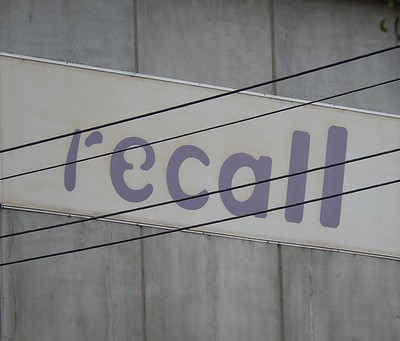I have written about the Mott Community College Board of Trustees’ interim president selection a couple of times already. In brief, last week, the Board selected an interim President who has no higher education experience. The choice has drawn sharp criticism from Mott’s faculty, who fear that the selection will place the school’s accreditation in jeopardy. The lates news is that a Flint resident has filed recall petitions against three trustees who voted to lower the eligibility standards for the college president role. This paved the way for them to hire a former GM and Delphi executive.
A recall is a low-percentage shot that amounts to a lot of work with little upside. If the Genesee County Election Commission approves the recall petition language – which is a chore in and of itself – the filer will then have 180 days to submit a number of signatures that is equal to 25% of the voters in the Genesee Intermediate School District (GISD) in the last Gubernatorial election in 2022.
The GISD boundaries are significant here because they represent the Mott Community College District. I don’t know how well the GISD boundaries overlay Genesee County, but nearly 105,000 people voted in the last governor’s race in Genesee County. If the Genesee County and GISD maps are even close, that means the petitioner needs to collect about 30,000-35,000 signatures to get the recall petitions in front of the voters.
The recall effort is clearly an angry response to what has happened at Mott. Unfortunately, petitioning in Michigan – recall or otherwise – is just generally hard. The First Amendment guarantees the right to petition, but prior to 2022, the Republican-led legislature made petitioning here nearly impossible. These changes apply to recall petitions as well as other voter-led initiatives.
November election may make recall moot
For the recall to succeed, it will take the coordinated effort of dozens – maybe hundreds – of volunteers to collect enough valid signatures in the allotted time. It’s uphill all the way. Additionally, if the recall language makes it to the ballot, there’s the issue of finding replacement candidates. (You can’t just recall someone; you have to replace them. In this case, the voters would be asked to replace three trustees.)
Although five trustees voted to hire Richardson-Snell, two of them are seeking re-election and are protected from recall at this point. The voters can weigh in on those two candidates in the upcoming election in November.
The moral of the story here is that it’s exceedingly difficult for citizens to remove elected officials once they’re in office. It’s much better to choose candidates carefully at election time, given the broad powers that Michigan law gives elected officials. (That’s true of any office, not just for community college trustees.) Currently, there are six candidates on the ballot for three open seats on the Mott Community College Board of Trustees. Andy Everman and Jeffrey Swanson have apparently not yet filed their candidacy paperwork. Voting out the two incumbent trustees would break up the current voting bloc that appears to have formed.
The challenges of running a successful recall campaign may be insurmountable, but a recall might not be necessary. A better, more immediate strategy may be to focus on replacing two incumbent trustees this fall.
There’s nothing good about lowering the standards for a job as important as the leader of a community college in an area that has deep economic challenges. Or choosing the underqualified candidate over those with the necessary academic credentials. But it’s equally important to help voters identify the right Trustee candidates on a crowded ballot.
Photo Credit: Michael Coghlan, via Flickr











